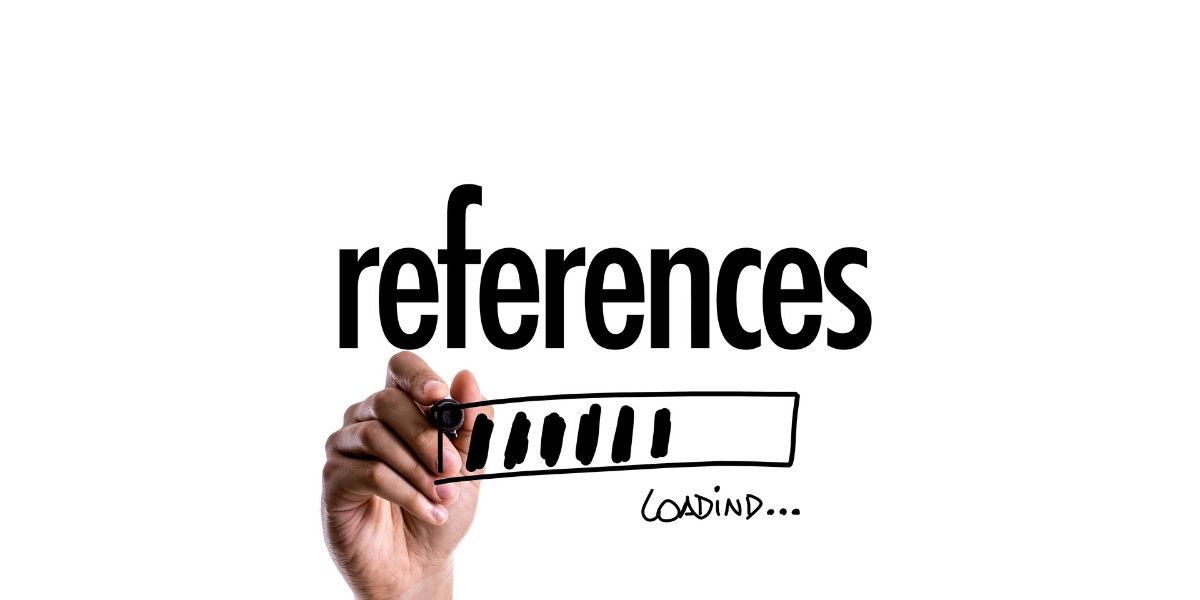Career Advice
How To Ask For a Reference Letter: A Complete Guide (with Free Email Template!)

Reference letters increase your chances of an interview callback by over 60%.
When you share reference letters with your potential employer, you have an objective source to vouch for your abilities and skills.
Clearly, reference letters from the right referee are extremely helpful for you to land that interview or job of your dreams!
So how do you go about writing an effective reference letter? This step-by-step guide will walk you through the best way to ask your references for a recommendation letter.
What is a Recommendation Letter
A Reference Letter is a letter written by a separate source to attest for your skills and experience. These letters are usually submitted during a job application to your future employers. They can also be submitted internally, when you are gunning to receive a promotion within your company.
Reference Letters can also be known as Recommendation Letters. In this article, we will both words interchangeably.
Who to Request a Recommendation Letter From
A Recommendation Letter is an important document that adds weight to your job application.
As such, you want to request a reference letter from a trusted former supervisor or colleague who you have worked with before.
An ideal referee to consult should have these traits:
- Worked closely with you before
- Holds a credible and authoritative position within an organisation. It would be helpful if they hold a more senior position than yourself
- Supports your career growth and development
- Trustworthy and authentic
Writing a Job Reference Letter Request Email
While your cover letter plays an integral part in your application, a letter of recommendation can boost your chances of landing the job or getting a second interview.
But how does one ask for a job reference letter the right way? It may not be rocket science, but it can be nerve-wracking to ask a former boss for such a favour.
To make things easier, here are six steps to help you get that coveted referral letter:
Step 1: Explain Where You Are Today and What You Need
Don’t beat around the bush. Keep in mind that your former boss is likely very busy. While you don’t want to skip the pleasantries, you should get to the point as quickly as possible.
Open your request by sharing the goals of your email.
A great way to start could be:
Step 2: Explain Why You are Approaching Them
A good rule of thumb to follow would be to choose the best candidates for your letter of recommendation. When you reach out to them, be specific about your working relationship and why you chose them.
Here’s an example of what you could say:
Step 3: Highlight Some of Your Achievements
Just because you had a great boss doesn’t mean they remember everyone they have ever worked with. While they may have encountered you in passing, not every boss is fully aware of what you did on a daily basis.
To boost your competitive advantage, you must ensure they recommend all your strengths and skills relevant to this new position.
You could write something like:
Step 4: Give Them a Chance To Say No
It is important to give your former boss or mentor an option to say no without feeling uncomfortable.
Ensure the referee understands that they have a choice in the matter.
A simple line like this might help:
Step 5: Close With A Warm Thank You
At the end of your request, thank your former boss or colleague for their time. Here’s what you could say:
Step 6: Sign Off
Sign off with a joke or memory from the old days, something that may put a smile on your referee’s face. This is your chance to truly reconnect with your former boss.
Here’s an example:
Example of How to Ask for a Reference Letter on Email
Now, it’s time to put all these steps together!
Here’s the full reference letter request email sent to Martin:
How to Ask for a Reference Letter: Free Template You Could Use
Now that you know how to ask for a letter of recommendation, feel free to write your own.
Here’s a helpful template you can follow to make things easier.
Additional Tips To Remember
There’s more to asking for a job recommendation letter than sending templated emails. Here are some tips you might find helpful:
- Scout the best candidates. Not all your former bosses can impart information that will help your new application. Choose the most appropriate references to contact.
- Make sure your letter of recommendation covers the relevant skills you highlighted in your resume. If you’re having trouble writing a great resume, you may want to look into a professional resume writer who offers CV writing packages, or consult with one for free.
- Make every letter personal and tailor your email to the person you’re sending it to.
- Be polite and send out a thank you email once you receive a reference letter. Maintain professional connections by thanking them for their time.
Conclusion
Securing a job recommendation letter is your best bet if you want to be called in for an interview. Now that you know how to ask for a reference letter, it’s time to streamline your CV.
ResumeWriter Tip: Not sure how well your CV measures up against the competition? Schedule a CV feedback session today!

